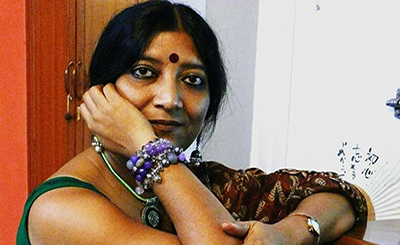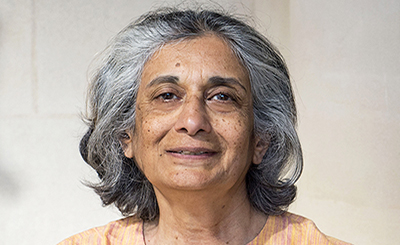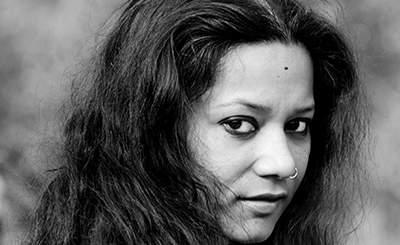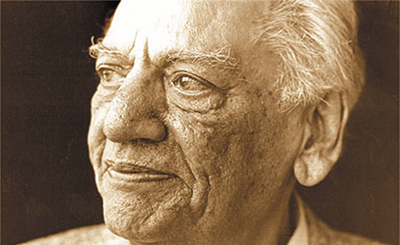
Loneliness can be hard. But it is a fact of life. If you can punch it by enjoying the solitude and accepting it as a normal part of life, it can soothe you. Here’s how it taught me to find myself
I came across Olivia Laing’s The Lonely City: Adventures in the Art of Being Alone (2017) a few years ago and finished it in a couple of days. And then, I read it, all over again. It is one of those rare works of non-fiction that seems like a page from my own history. I connected instantly with Laing’s poignant description of loneliness and the art of living with it. When lonely, there are no clear-cut stages that one goes through, just as one does when in grief. There are no prescriptions that will lift you out of a pit. However, Laing’s book assured me that I was not the only one inside the “serene” storm.
Feelings are, after all, one’s emotional reaction to certain things. Loneliness as a feeling is subjective, but the common thread that binds lonely people is a sense of emptiness, of vagueness, the source of which we can’t quite put the finger on. It’s a choice whether to let loneliness entangle your soul like creepers or you embrace the solitude and make a good day out of it. For me, it tethered my body and, in the end, taught me to explicate my intramural disposition.
Being an Indian, I was never short of people skirting around. Three generations of us lived under a roof since my birth. I left the cocooned, familial environment for higher studies in a distant city. That was my first brush with loneliness. It is a story I won’t tell because it was brief. It washed over me like seasonal rain. I made friends, I crept out of my shell, and I was “normal” after a few months. It was a mere transition than a prolonged period of loneliness.
A few years later, I reencountered loneliness. This time, there were blues more than any other colours. It was brutal yet humane. There were bouts of tears and restlessness, yet it was a journey of self-discovery.
After my Master’s, I decided to do a diploma in journalism. It was not because I was passionate about or dreamt to be a journalist. After my Master’s, a few of my relatives remarked that a career as a teacher or an academic would suit me as I am a “woman”. They said, “It is less stressful and more a ‘family-oriented’ career (whatever heck that means)”. Why people in India look at “academia” as “female-oriented” is beyond my comprehension. The rebel in me did not accept their trite remarks. Those threadbare ideas about a “women’s place” in the family miffed me immensely. I was exasperated even to imagine that a woman must choose a profession which is leisurely. She should go for flippant career options. It would benefit her future family. What about her free choice and zeal?
My indignation was valid, but it hazed my mind and pushed me in a direction for which I was neither suitable nor prepared. In the deep recesses of my mind, I had harboured a dream to do research (academics), be a sociologist and write as much as I can on any topic. The snide remarks from a few twerps made me hallucinate that journalism is one of the professions that would infuriate the “nosy” relatives. My parents, like always, supported me.
I took that false call of a rebellious mind, and I plunged into journalism. The decision did not create the ripples I had expected. People make remarks and forget about them. I wish I had known then. But I was happy that I was taking my chance with a traditionally “male-dominated” profession.
On reaching my hostel (inside the institute), I had a déjà vu that perhaps things may not turn out quite well. I shared a room with three other girls. My roommates were not the friendliest of people, but they were harmless and well-meaning. It took me a week to scout the new faces and minds. I was thinking which cliques should I join to avoid being alone. A week after, it grasped me — the feeling of intense loneliness, the shame of being seen alone all the time. I was not a hot potato during my Master’s, but I had lots of convivial friends and kind-hearted mentors.
The fresh graduates who had joined the journalism diploma course were younger than me. The student groups mostly consisted of the jejune folks who had left home for the first time. They went all out to break all rules. The game of “hide and seek” with the warden enthralled them. The eagle-eyed, but innocuous warden keenly observed those who drank, smoked, frolicked or kissed in the open lawns. Those were least of my concern. I spent most of my days and late into the night without getting an iota of personal and mental space. I felt stifled with those people. I always thought to be lonely meant being alone and going crazy to seek a company. I discerned that one can be lonely when surrounded by people whose wavelengths do not match yours. You can be alone when you can barely find the one of your “type” in a crowd.
I was lonely because I did not know how to talk to those whose only idea of “fun” was weekend visits to clubs, decked in trendy clothes, and bragging about getting drunk. I am not preachy; I am not narrow or judgmental. I was just a different kettle of fish. The loneliness stemmed out of my inability to join those “it” gangs and the snooty 20-year-olds in their sequins. I was lonely because, in our small hostel room, the crowd never left. My roommates would watch movies and listen to loud music until dawn. They hit the sack a few hours before sunrise. My sleep is light, and I barely got a wink of it at night. I am an early sleeper. The changes in sleep patterns, lack of buddies to hang out with and discontentment with my space pushed me further into the tunnel. I did not write, or read a book, during those days.
I gawked in vacuity at whimsical “cats and pandas” videos. I browsed sites and images arbitrarily, to peg down my mind and halt my racing thoughts. Instead of accosting my loneliness, I used these tactics to smoother my thoughts.
When strangers surrounded my little space, encroached upon it, I stared at their shadows on my wall. I remember being jealous of a bird which built a nest on the tree outside my room. The bird had its little space, made her own rules and had her babies to chatter. I mostly resented sitting on the lawns because I was ashamed of being seen alone. I stayed back in the room, with tears streaming down my face. If I ventured in the campus lawns during dusk, I clung to artificiality. I randomly joined groups of people who sighed at my “one-liners” and misunderstood my “ranting” as “jokes”. I barely had words to speak, and thus, my journal, too, remained crisp white during this time.
I remember those days of solitude which I thought I would enjoy; instead, I wasted it away by closing my eyes, trying to sleep. Sometimes even wondering how many times my ceiling fan rotated in a minute!
The last day of the course was my happiest day. I got a job in the same city, and I felt equally lonely, but this time something different happened. I had a steady salary and room to live alone. Loneliness hovered above me and within. This time, I took baby steps to enjoy my solitude. I discovered that small things, such as working out in my room and humming my favourite song in the room. It made me jovial. I read bulky classics that I always thought I would never find time to read. As I strolled alone, I stumbled upon run-down sacks which made delicious masala dosas and samosas.
I did not seek any male company, and I did not give a fig about being seen alone. During weekends, I took long evening walks to the beach and typed my journal there. I enjoyed the fresh fish fries from the stalls. I discovered the city (Chennai), its food and keenly observed how people dressed and behaved. My evenings would sometimes end in dinner with fluffy idlis or hummus and pita bread. Often, I would end up in small Italian joints and gorge on stuffed ravioli or tiramisu. I could spend my evenings with a book, sipping tea and scones in quaint cafes. Food rescued me during those tough days. Books were a solace, but still I missed something.
I never wanted to be a journalist. The pay was meagre, the work was untimely, and all I did was updating their online platform or design the newspaper pages. With my colleagues, I got into a similar zone of relationship that I had with the students at the institute. I was detached to the surrounding and waited eagerly to leave the office. Within me, some questions raised their ugly heads. I contemplated for months on how not to drag life but enjoy living it. I thought genuinely about what I wanted. After a few months of reverie and sitting on the fence, I decided to quit.
I came back home for a while, applied for a PhD programme in sociology and got through a premier institute. I am happier than ever, and I write, read and do my field research in remote tribal areas, trying to understand their food patterns and ecology.
Loneliness is hell. It can belittle and mock you. It can shred your dignity to the tiniest of pieces. However, if you can punch it by enjoying the solitude and accepting it as a normal part of life, it can soothe you. After all, loneliness is a fact of life. Friends can snuggle you into an illusion of camaraderie. You can see gangs of youngsters on a table nearby in a restaurant and feel ashamed of yourself. Still, in the end, it is about enjoying your own company. The first step is to accept loneliness as normal and not feel abashed by it.
I don’t regret the years I spent trying to be the “journalist”. It made me realise what I want, and along the way, I did meet a few people whom I can call friends. But loneliness taught me to be self-reflective. I wrote poetry in office, enjoyed the food in tiny street corners, and dressed up for grocery shopping. I spent hours thinking and struggling, trying to figure out things that would sync with my passion. I was looking for fulfilment rather than just doing a job.
In the end, the lesson I learned was not to rebel just for the sake of it or else we simply become pawns in our own game. I am happy being the “academic” not because it will suit me as a woman but because I chose to be one. I chose it because it makes me immensely happy. The same people who made those remarks now pretend to worry about other pressing aspects of my life. The biggest lesson that loneliness taught me is to stand one’s ground and listen to that crumbling voice within, even when I may or may not have been right.
More from The Byword
Comments
*Comments will be moderated










